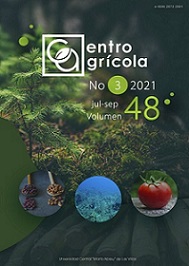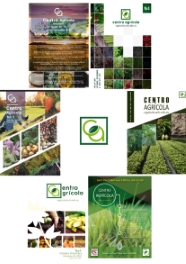RESEARCH ARTICLE
Environmentally friendly alternatives to bean and corn seeds production on the “Soterrado” farm in Cienfuegos
Alternativas más limpias de producción de semillas de frijol y maíz en la finca “Soterrado”, provincia de Cienfuegos
Mailiu Díaz Peña1, Teresita Álvarez González2, Helia Quintero Pupo2
1-Centro de Estudio para la Transformación Agraria Sostenible. Facultad de Ciencias Agrarias. Universidad de Cienfuegos “Carlos Rafael Rodríguez”. Cienfuegos, Cuba, C.P. 55100.
2-Empresa Agropecuaria Cienfuegos. Cienfuegos, Cuba, C.P. 55100 .
E-mail: This email address is being protected from spambots. You need JavaScript enabled to view it.
ABSTRACT
The main objective of this research is to evaluate the environmental impact associated with the life cycle of seed production of bean (Phaseolus vulgaris L.) var. CC 25-9 N and maize (Zea mays L.) var. TGH on the Soterrado farm. The life cycle assessment (LCA) methodology is applied, according to the NC-ISO14040, which includes the life cycle inventory of the crop, the assessment of the environmental impact of beans and maize crops and the assessment of the alternatives for environmental, agricultural and economic improvement. The environmental impact assessment helped determine the most affected impact categories: the non-renewable energy, global warming and respiratory inorganics. The most affected damage categories were damage to resources, human health and climate change. The consumption of urea, NPK and diesel represented an environmental impact with the highest contribution percentage. Two alternatives of environmental, agricultural and economic improvement for each crop were evaluated. They could reduce the environmental impact of the production of beans in 53.28 % and 79.25 % respectively and corn on 47.64 % and 63.48 % respectively. These alternatives would increase yields and soil characteristics, and help to reduce the production cost. It is recommended to inform the results of research to producers of Soterrado farm, validate the results, and apply this methodology to other crops in order to reduce the impact associated with agriculture.
.





